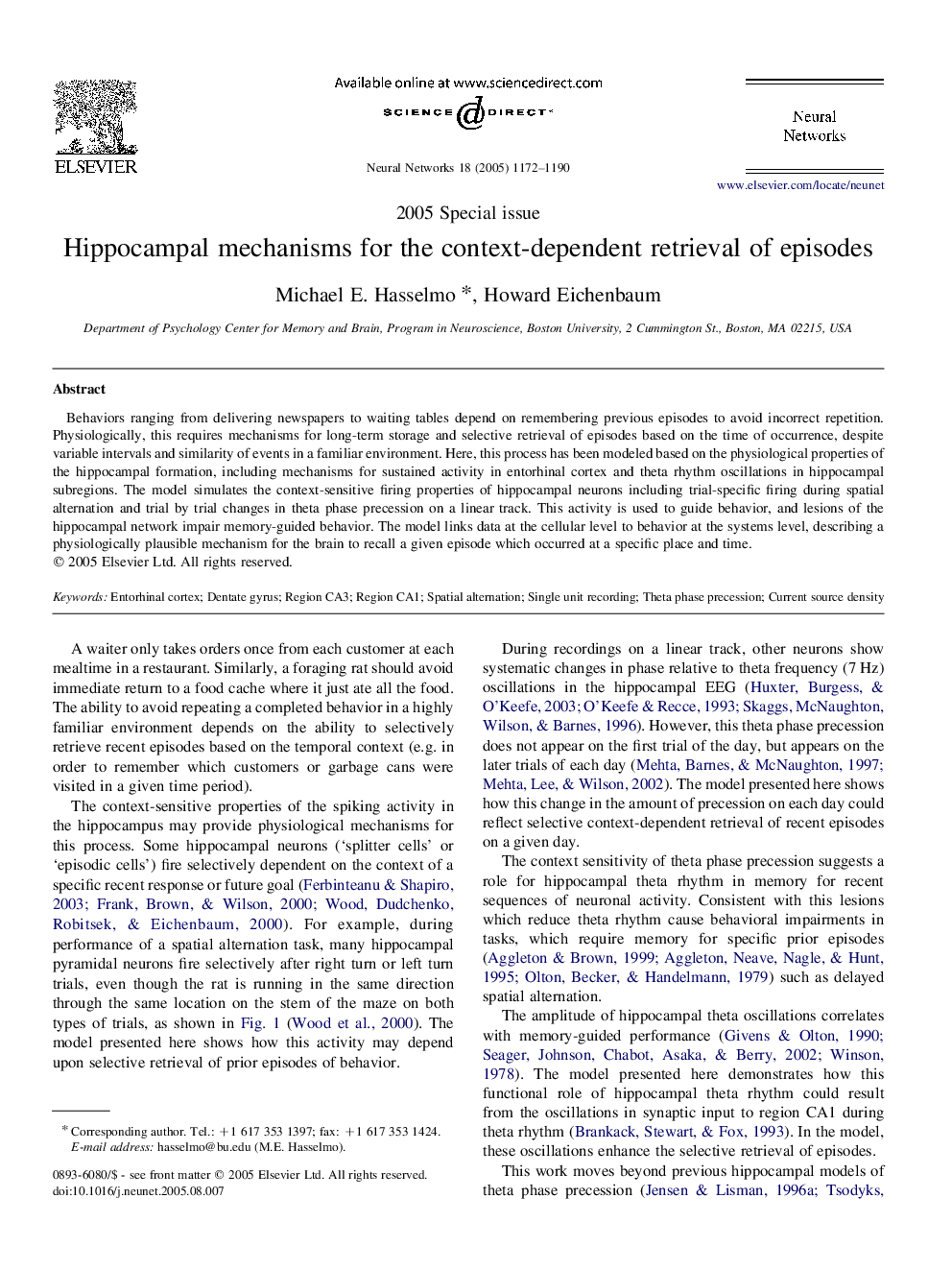| Article ID | Journal | Published Year | Pages | File Type |
|---|---|---|---|---|
| 10326037 | Neural Networks | 2005 | 19 Pages |
Abstract
Behaviors ranging from delivering newspapers to waiting tables depend on remembering previous episodes to avoid incorrect repetition. Physiologically, this requires mechanisms for long-term storage and selective retrieval of episodes based on the time of occurrence, despite variable intervals and similarity of events in a familiar environment. Here, this process has been modeled based on the physiological properties of the hippocampal formation, including mechanisms for sustained activity in entorhinal cortex and theta rhythm oscillations in hippocampal subregions. The model simulates the context-sensitive firing properties of hippocampal neurons including trial-specific firing during spatial alternation and trial by trial changes in theta phase precession on a linear track. This activity is used to guide behavior, and lesions of the hippocampal network impair memory-guided behavior. The model links data at the cellular level to behavior at the systems level, describing a physiologically plausible mechanism for the brain to recall a given episode which occurred at a specific place and time.
Keywords
Related Topics
Physical Sciences and Engineering
Computer Science
Artificial Intelligence
Authors
Michael E. Hasselmo, Howard Eichenbaum Howard Eichenbaum,
